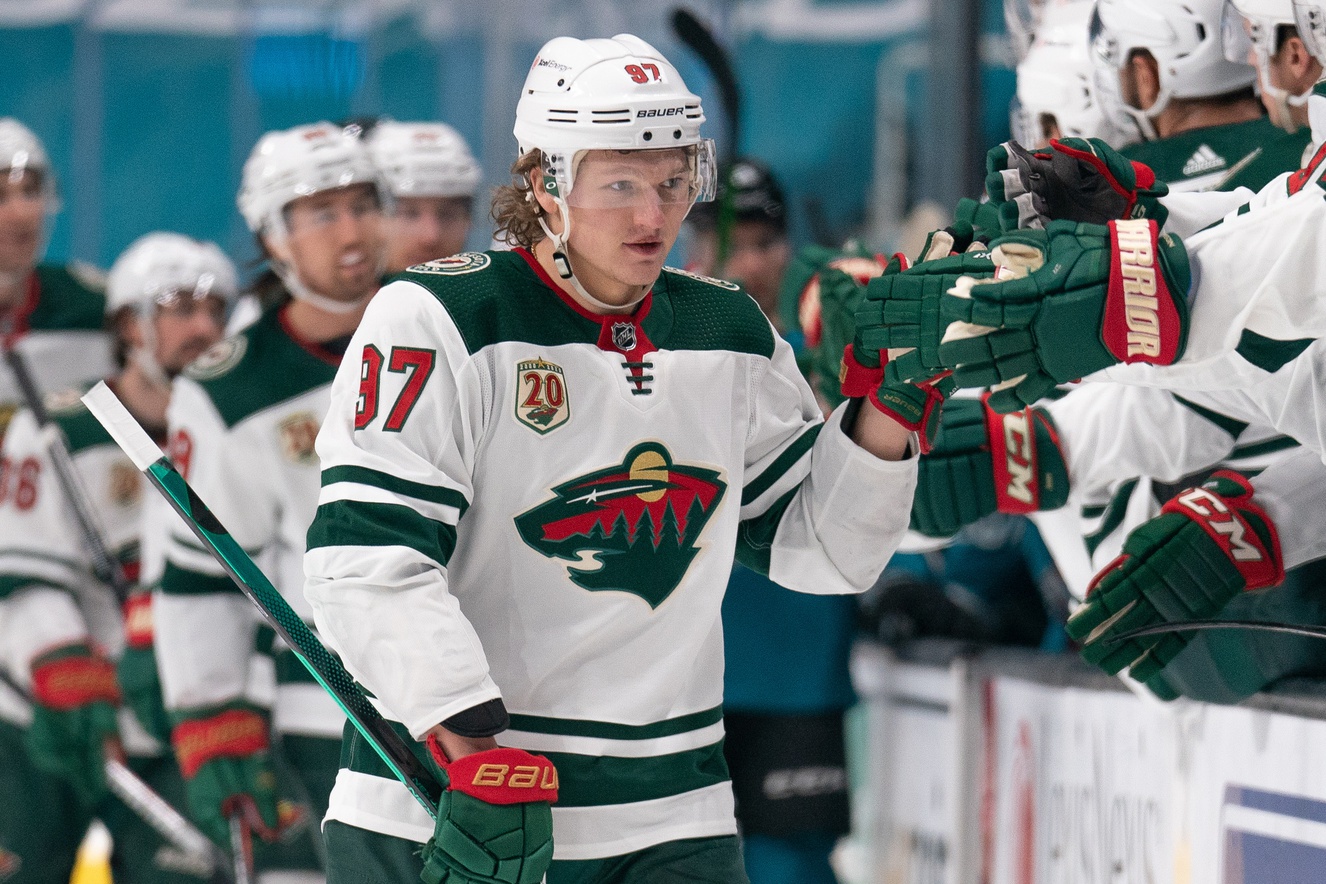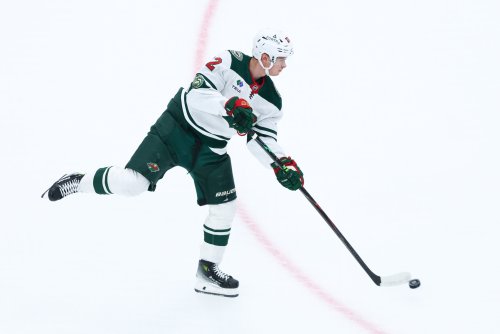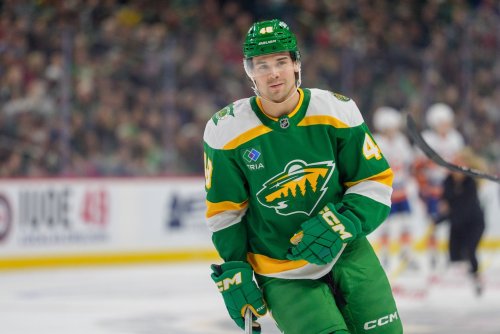
Rookie Kirill Kaprizov has been a Calder Trophy lock from the get-go. He opened the season with a three-point night capped off with an overtime goal. He hasn’t slowed down since, posting 19 points in his first 21 games.
Kaprizov leads all rookies in points, with second-place Josh Norris of the Ottawa Senators trailing him by four with five more games played. He also leads the NHL in Evolving Hockey’s Wins Above Replacement metric. As for “It” Factor, Kaprizov might lead the entire NHL, with him routinely stunning hockey fans and commenters nationwide.
Judging solely on what rookies are doing on the ice, there’s no point in debating the Calder Trophy. You only have to ask one question of any contender: Are you as good as Kirill Kaprizov? The answer’s “No,” and there’s statistical proof and a highlight reel’s worth of anecdotal evidence.
Don’t worry, though, because we’re going to have this debate anyway. Senior NHL Reporter for The Athletic Pierre LeBrun has entered the chat.
LeBrun’s contention here isn’t that Kaprizov is the best rookie, because again, that would be insane. Instead, it’s that Kaprizov is too old and with too much KHL experience to be considered a rookie.
It’s true that Kaprizov is further along in his development than, say, 19-year-old Alexis Lafreniere, the preseason Calder favorite. It’s also true that Kaprizov is facing challenges as a 23-year-old KHL import that previous Calder winners didn’t have to overcome.
But Pierre didn’t have time for Elite Prospects’ Dimitri Filipovic raising those challenges.
If only there was guidance as to how to vote on the Calder Trophy. Maybe we should check NHL.com, which states:
It’s pretty clear that Kaprizov, 23, is well within eligibility of the award. You could maybe attempt an obscure reading of “any major professional hockey league” to include pro leagues in Europe, but then you’d have to explain why Elias Pettersson and Auston Matthews (who played in Sweden and Switzerland before making the NHL) should have to give back their awards.
As for the question of whether Kaprizov should be eligible at 23, well, the NHL has been through this before. In fact, that’s why they have that rule in the first place. In 1990, Sergei Marakov was allowed to join the NHL by the Soviet Union, where he won the Calder at 31. Everyone agreed this was a bit weird, and set the age limit to 25.
Since then, there’s been no problems. Generally, Calder winners have hovered around age-20, but plenty of older rookies have won the award without incident.
Ed Belfour (1991), Daniel Alfredsson (1996), Evgeni Nabokov (2001) and Andrew Raycroft (2004) all received the Calder at 23 or older since the Marakov Rule was instituted. No one cared whether they were seasoned veterans or not. Same with recent Calder finalists Dominik Kubalik (24 in 2020), Jordan Binnington (25 in 2019), Tyler Johnson (23 in 2014) and Michael Grabner (23 in 2011).
And, of course, there’s Artemi Panarin. Panarin, like Kaprizov, entered the NHL after years of KHL experience. In fact, Panarin was in his age-24 season at the time of his debut, older than Kaprizov. It didn’t matter to voters, as Panarin’s 77-point season elevated him to the Calder over Connor McDavid (whose season was cut short due to injury). It wasn’t even a debate, as Panarin took 88 of 150 first-place votes.
At the time, national writers were squashing the debate. One wrote, “The 24-year-old winger seemingly is losing points among voters because he played pro hockey in the KHL before coming over. I’m not sure that’s fair, he’s still a rookie in the NHL, didn’t speak a word of English when he came over, had to adjust to a different type of game and culture. The NHL rookie points leader deserves more credit.”
That writer’s name? Pierre LeBrun (credit to @MapexDrummer26 for unearthing that). So if 2016 LeBrun wasn’t concerned about an even older player winning the Calder, why does the 2021 version suddenly care enough to specifically refute the exact logic he had in favor of Panarin?
Maybe Pierre has given some thought to the matter and genuinely changed his opinion. It’s also possible that he really, really wanted to get ratio’d on Twitter Friday night. Of course, we can’t discount the Anti-Wild Illuminati that we all know controls the media.
Whatever the reason, this is a nonsense debate. The NHL Awards ideally serve as a time capsule for the season. No one's going to remember this year as the year Norris, Tim Stutzle or Kevin Lankinen took the NHL by storm. They're going to remember Kaprizov delivering on every ounce of the hype built up for him. The voting should reflect that.
Kaprizov clearly qualifies for the Calder, and isn’t even the oldest player considered in recent memory. He’s so obviously the best rookie that the only way to deny it is to ask the mods to change the rules. No amount of posting will change this inevitability.
This article was possible in part due to Hockey Reference's Awards Voting History.
Think you could write a story like this? Hockey Wilderness wants you to develop your voice, find an audience, and we'll pay you to do it. Just fill out this form.







Recommended Comments
Join the conversation
You can post now and register later. If you have an account, sign in now to post with your account.
Note: Your post will require moderator approval before it will be visible.